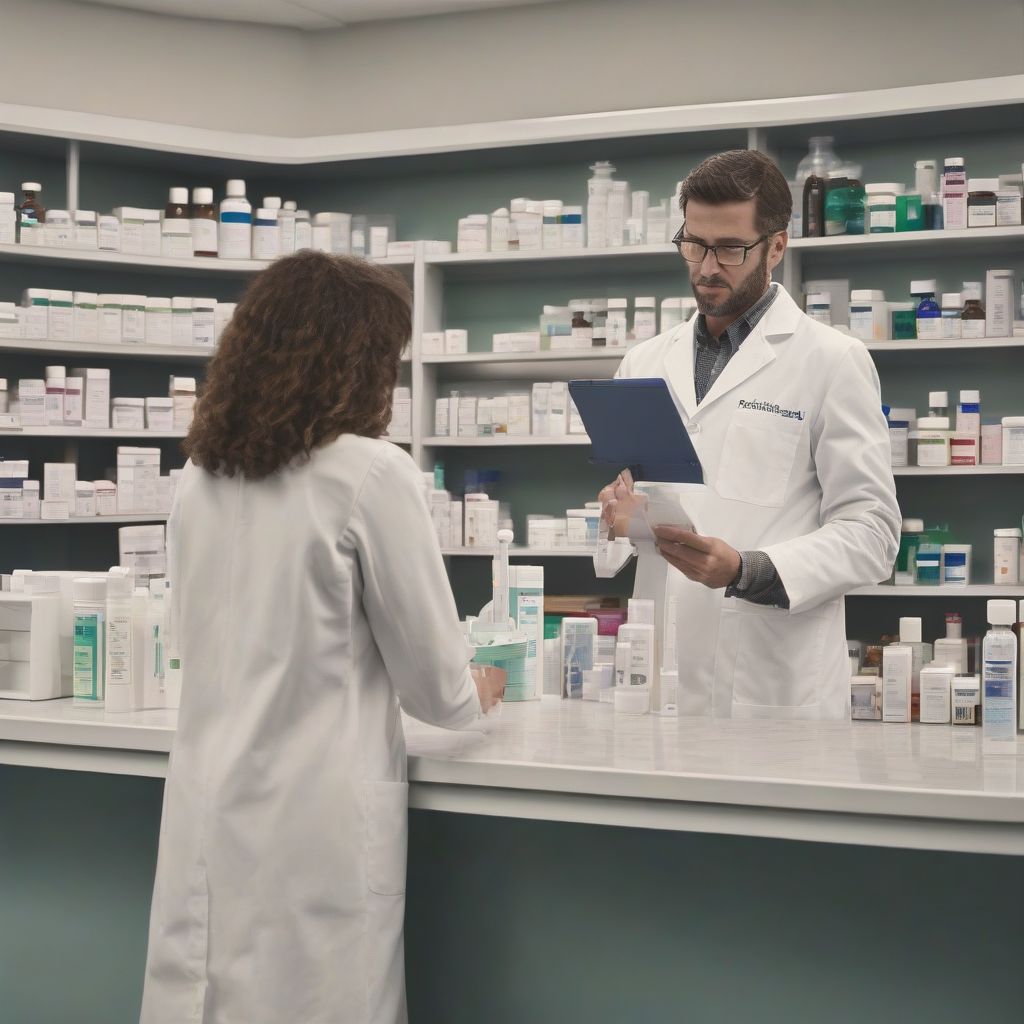Navigating the world of pharmaceuticals can be confusing, especially when terms like “pharmacy technician” and “pharmacist” seem interchangeable. While both roles are essential in dispensing medications and ensuring patient safety, they have distinct responsibilities and educational paths. This article will delve into the critical differences between pharmacy technicians and pharmacists, helping you understand their respective roles and how they contribute to the healthcare system.
Understanding the Roles
Pharmacy Technician: The Essential Support System
Pharmacy technicians are the backbone of any pharmacy. They work closely with pharmacists to ensure the smooth operation of dispensing medications and providing excellent patient care. Their duties often include:
- Assisting with prescription processing: Receiving prescriptions, entering patient information into the system, and preparing medications for dispensing.
- Managing inventory: Ordering, stocking, and organizing medications to maintain appropriate inventory levels.
- Communicating with patients: Answering phones, addressing patient inquiries about prescription refills, and providing basic medication information under the supervision of a pharmacist.
- Compounding medications: Under the direct supervision of a pharmacist, measuring, mixing, and preparing customized medications based on prescriptions.
- Administrative tasks: Handling insurance claims, managing paperwork, and performing other administrative duties to support the pharmacy’s workflow.
Pharmacist: The Medication Expert
Pharmacists are highly trained healthcare professionals with extensive knowledge of medications and their effects on the body. They play a crucial role in ensuring medication safety, optimizing patient outcomes, and promoting overall wellness. Their responsibilities extend far beyond dispensing medications and encompass:
- Reviewing and verifying prescriptions: Pharmacists are responsible for ensuring the accuracy, appropriateness, and safety of every prescription before dispensing.
- Counseling patients: Providing comprehensive information about medications, including potential side effects, interactions, and proper administration.
- Monitoring drug therapy: Assessing patient response to medications, identifying potential drug-related problems, and making necessary adjustments to therapy in consultation with prescribers.
- Providing immunizations and health screenings: Administering vaccines, performing health screenings like blood pressure checks, and offering guidance on disease prevention and management.
- Collaborating with other healthcare professionals: Working closely with physicians, nurses, and other healthcare providers to optimize patient care and medication therapy management.
 Pharmacist Consulting a Patient
Pharmacist Consulting a Patient
Key Differences: Education, Salary, and Career Path
The distinctions between pharmacy technicians and pharmacists extend beyond their daily duties. Here’s a closer look at the critical differences:
Education and Licensing
- Pharmacy Technician: Typically requires a high school diploma or equivalent. Certificate or associate degree programs in pharmacy technology are becoming increasingly common, enhancing job prospects and earning potential. Many states also require pharmacy technicians to be registered or certified, which may involve passing an exam.
- Pharmacist: Requires a Doctor of Pharmacy (Pharm.D.) degree from an accredited pharmacy school, a rigorous program that typically takes six years of post-secondary education. Aspiring pharmacists must also pass two licensing exams: the North American Pharmacist Licensure Examination (NAPLEX) and a state-specific law exam.
Salary Expectations
- Pharmacy Technician: The median annual salary for pharmacy technicians in the United States was $36,740 in 2021. Salaries can vary based on location, experience, education, and employer.
- Pharmacist: The median annual salary for pharmacists in the United States was $128,790 in 2021. Factors influencing salary include location, experience, specialization, and work setting.
Career Advancement Opportunities
- Pharmacy Technician: With experience and additional certifications, pharmacy technicians can advance into senior technician roles, specialized areas like compounding or chemotherapy, or pursue supervisory or management positions.
- Pharmacist: Pharmacists have diverse career paths. They can specialize in various areas like ambulatory care, oncology, or infectious disease. They can also pursue research, academia, or management roles within pharmaceutical companies, hospitals, or government agencies.
Choosing the Right Path
Both pharmacy technicians and pharmacists play vital roles in the healthcare system, ensuring the safe and effective use of medications. Understanding the key differences between these professions can help aspiring healthcare professionals choose the path that aligns best with their career aspirations, interests, and educational goals.